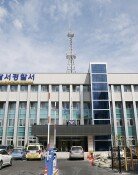[Opinion] SAT and CSAT in Korea
The Scholastic Aptitude Test (SAT) is the American equivalent of the Korean college scholastic aptitude test. Seniors in American high schools can take the test three times. This increases to four times if you count the trial test, the PSAT. Also, students can decide when to take the test depending on their preparation level. The test schedule is available on an annual basis in advance, and test applicants can register for the test following their own timetable.
The SAT is composed of verbal and mathematical sections. If a student gets a high score on the math section, the student can focus on the verbal section for the next test. The final score in each section that students send to their top-choice colleges is the highest score they get regardless of their test-taking period. Students who have high ambitions and desire entry to prestigious colleges need to take the SATⅡ, which has more subjects. These include advanced math, chemistry, biology, writing, world history, a second foreign language, literature, and other subjects. Students who take the SATⅡ can opt for their own subjects according to their interests and the requirements their top-choice colleges demand.
The Korean version of the scholastic aptitude test does not have flexibility the way the U.S. version has. The Korean SAT has been influenced by the American test concept. However, it is too standardized. It seems that it is the result of a bureaucracy weighing down the convenience of officials. The test is a one-time chance in life, and it has a strong influence on deciding each students life track. This heavy burden upon students shoulders seems to have been at the root of this years cheating scandal. What kind of problems would the SAT have if the test were available six times a year? Which educational philosophy does this once-a-year-policy base itself on? In addition, the new changes on the SAT divide applicants into seven to nine groups with one test result. This test policy can only be interpreted as a way for the test to lose its capability of discriminating on the basis of each student and respecting individual students characters and capabilities.
In light of the cheating scandal on the SAT, I strongly urge authorities and the nation to reconsider the Korean education system again. The minister of education pledged to rethink the fundamentals of education. The most urgent need now is transforming the testing system into a more humane one. The current irrational system and poor administration have made the test into a lottery game and enticed students to commit the crime of cheating.
Lee Jae-kyoung, guest editorial writer, professor of Speech Studies at Ewha Womens University, jklee@ewha.ac.kr







